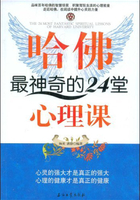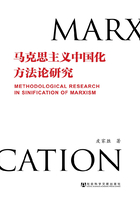To Get to the Angels,
Deal with the Devil
If you are humble, nothing will touch you,
neither praise nor disgrace,
because you know what you are.
MOTHER TERESA
IMAGINE THE BUSINESS that has been in your family for fifty years is days away from running out of cash. You have three hundred employees and their families relying on their jobs to provide for them. Your uncle has served time in prison and embarrassed the family for years but has offered to bail you out. You have no other alternatives. What do you do?
This story and others like it represent an ethical dilemma that each of us may face at some point, be it in a personal or a professional setting. It is at these times that our values shine and our stress levels skyrocket. You are a leader; you have spent the last few years building your vision; how far are you willing to stretch for it? Does the end justify the means? What is important in these situations is to understand what your goal is and then to recognize where you draw your line. What would you do in this situation?
The Devil
Here's a conclusion to a similar story. Mother Teresa and the Missionaries of Charity accepted money from the notorious Jean-Claude “Baby Doc” Duvalier, the ruler of Haiti.[5] Baby Doc was driven into exile because of his repressive regime and his brutal treatment of the people of his country.
It has also been reported that Mother Teresa accepted more than one million dollars from Charles Keating, the former CEO of the infamous Lincoln Savings and Loan in the United States.[6] More than twenty-three thousand people owned investments related to Lincoln, and when it collapsed, many lost their life savings. The collapse also cost the U.S. government over three billion dollars. Mr. Keating ended up serving more than four years in prison.
How could Mother Teresa possibly take money from these types of people? Wasn't it directly opposed to everything she and the Missionaries of Charity stood for? In her ethical scheme, they were “devils,” but she dealt with them anyway.
Mother Teresa faced other forms of the devil throughout the growth of the Missionaries of Charity. Critics, who became increasingly vocal as her success grew, perceived downsides to her work. Some called attention to her use of donated money to open new convents and increase missionary work rather than on improving conditions at the hospices or helping to end poverty.
The Missionaries of Charity do not disclose either the sources of their funds or details of how they are spent. In 1998 an article in the German magazine Stern estimated that the order received about fifty million dollars a year in donations.[7] Other journalists have given estimates of one hundred million dollars a year. Critics have argued that this money cannot all have been spent on the purpose for which it was donated—aid to the sick and the poor—because the order's facilities, staffed by nuns and volunteers and offering little in the way of medical care, are very inexpensive to operate. Critics maintain that the majority of the money donated is transferred to the Vatican Bank in Rome, where it is used by the Catholic Church for its general purposes, or to non-Christian countries for missionary work. It has also been widely said that primitive methods, rather than proper medical care, have been used to treat the poor and dying who come to the Houses of Charity.
How did Mother Teresa respond to these perceived devils—essentially the results of operating within the larger church organization, and of working on an enormous and intractable problem? By standing firm in her beliefs. As Clark Morphew, syndicated columnist for Knight-Ridder Newspapers, puts it:
Wiping out poverty and illiteracy was not Mother Teresa's focus. She set out as a young woman to form an order that would bring a touch of humanity and the theology of the Catholic Church to the poor of the world. She never pretended to be a doctor who could wipe out or even soften the pain of death. She and her little army of sisters were there to bring spiritual comfort to the suffering, a concept that apparently escapes her critics.
That said, she was human, and she surely made mistakes. But despite the terrible challenges and the opposition to her methodologies, she never gave up.[8]
Whether Mother Teresa herself identified these criticisms as “devils” or whether the problem was that being criticized made her work more difficult, we do not know. Either way, criticism did not lessen her determination to pursue her work. Mother Teresa never set out to change the world, just to help the person in front of her.
As a leader, you too will face challenges to your principles. For example, how can you do business with someone whose values are not aligned with yours? How will doing so impact your organization and its people? How will it impact your customers?
Getting to the Angels
Mother Teresa's angels were the poor people whom she served. Comforting and offering dignity to those who had never received it were her bottom line. The number of lives she touched was her return on investment. Building the global infrastructure to reach them was her biggest capital cost. Her sole source of funding was donated capital. Mother Teresa's focus never wavered from her mission to serve the poorest of the poor, and she needed money to do her work.
Devils have done terrible things to humankind. Their capital may have been gained in terrible ways. So where do you draw the line in dealing with them? Mother Teresa drew a clear line between the source of the donation and its use. She decided that the good the money could do in serving more of the poorest of the poor outweighed the character of its source. She accepted charity from the devils to get to the angels.
Choices
As a leader, you can approach ethical dilemmas by answering several questions. First, who are your angels, and what is your goal? Mother Teresa's angels were the poorest of the poor, and her goal was to serve them. To do that, she needed people and money. The Missionaries of Charity need capital to support their daily activities as well as the opening of new missions in areas of need. The organization gets this capital principally from donations.
Second, what is your guiding principle on the issue at hand? Mother Teresa believed that charity comes from the heart. Therefore, she did not question the origins of her donations. She was often quoted as saying, “If you judge people, you have no time to love them.” This is a paraphrase but is entirely consistent with her beliefs as we understand them.
Finally, where in your value set do you draw the line? Knowing she was doing good things with the money given to her, Mother Teresa would take money unquestioningly, but that's as far as she would go. She never allowed donors to exploit her name or the Missionaries of Charity for their own purposes.
RUMA'S STORY: As Mother Teresa and her Missionaries of Charity grew in reputation, institutions, corporations, and multinationals often came knocking on her door to donate. More often than not, these offers of money were conditioned on commercial benefit for the donors. I remember multinationals approaching Mother and offering money in return for endorsements. Mother Teresa always refused. That was her line. She would not commercially endorse businesses.
Indeed, she would not accept payment for any services, only charity. She stated, “We never accept an invitation to eat out. Would you like to know why? Because accepting these invitations might give the impression that we accept payment for what we do, and we do everything free of charge.”[9]
At the time I volunteered with the Missionaries of Charity I was thinking of applying to law school, and I thought of asking Mother Teresa for a recommendation letter. The other sisters told me she would not write recommendations for volunteers anymore. She believed our volunteer work should not be done for personal benefit, but should come from the heart.
Leaders need to know where to draw their lines. Sometimes you have to compromise. You need to have the courage to decide which compromises are acceptable and which are not. You will not always make the right choices, and you will get criticized for them. Mother Teresa was criticized about many of her choices. Her response was to stand by her beliefs and focus on getting her job done. Other leaders may have to make similar choices, and being righteous and judgmental in our views will not help. Perhaps a potential customer is known for less-than ethical business dealings with others. Do you therefore turn down a deal with that customer? Or, as a leader with obligations to your people, do you do the deal because it will enable you to make payroll, keep your people employed, let them buy food for their families, and keep the doors open and thus further realize your company's vision?
RUMA'S STORY: I have raised a lot of money for profit and nonprofit ventures. When I pitch, I try to appeal to people's values. Sometimes, though, I face challenges similar to Mother Teresa's. I have heard that someone has done something that violates my principles—but that person is also able to write a check that will save from bankruptcy a company that employs two hundred people and helps them feed their families and put their children through school. Will taking that check compromise my principles? Which compromises are acceptable, and which are not? When do the means justify the ends?
LOU'S STORY: I was the chairman of the board of an earlystage consumer products company that was raising its first round of outside capital. The CEO did a great job in getting a term sheet from an institutional investor very quickly in a down market. However, the term sheet was extremely onesided in the investor's favor and not at all supportive of the management team. Although the money would have enabled the company to further realize its short-term goals, it would have hindered its ability to achieve its long-term vision. The CEO and founder decided, ultimately with the board's support, to reject it. The company failed to raise the capital from another source. Ultimately it sold all of its products but did not have enough capital to fund more production. All of us as individuals and as leaders will face decisions on dealing with our devils to get to our angels. How will you decide?
Mother Teresa's second leadership principle teaches us the need for a framework to make difficult ethical choices and how such a framework can help guide our decisions every single day as we lead our organizations. This second principle rests squarely on top of our first principle of “dream it simple, say it strong.” Taken together, they form the foundation upon which the remaining principles are built.
THE TERESA PRINCIPLES
To Get to the Angels, Deal with the Devil
? Remember who your angels are
? Know your ethical line
? Evaluate every choice against your line
? Don't cross your line















